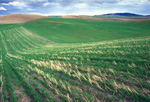 
The Natural Resources Conservation Service —
Helping People Help the Land.
Subscribe to NRCS This Week
| NRCS This Week Articles Index |
NRCS
This Week Archives |
Contact Us |
Where to Get Information
|
eNotes from
NACD |
 TSP Express
(Requires
Adobe Acrobat.) TSP Express
(Requires
Adobe Acrobat.)
This is your last chance to take
the NRCS This Week employee reader poll!

 All
responses will be kept completely confidential. All
responses will be kept completely confidential.
Valued non-employee readers – We are always glad to hear from you!
Please e-mail your thoughts, comments, and suggestions about NRCS This Week
directly to the
Legislative and Public Affairs
Division.

Alabama
 This item requires
Windows Media
Player This item requires
Windows Media
Player
 Getting
the Dirt On-line Getting
the Dirt On-line
Listen
to the AGNET Interview with Alabama Soil Data Quality Specialist George
Martin who talks about how the NRCS on-line Web Soil Survey can help growers in
his State.
Florida
 This item requires
Windows Media
Player This item requires
Windows Media
Player
 Hurricane
Cleanup Continues Hurricane
Cleanup Continues
Listen to the AGNET interview with Florida NRCS State Conservationist Niles
Glasgow who describes how NRCS in Florida is working clear last year’s hurricane
debris before any storms hit this year.
Iowa
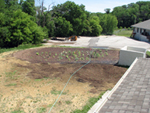 Leading
by Example Leading
by Example
When Iowa NRCS district conservationist Dale DuVal and Iowa Department of
Agriculture urban conservationist Rich Maaske moved to their new office in
Council Bluffs, they saw the perfect opportunity to utilize available green
space for an urban conservation demonstration.
Kansas
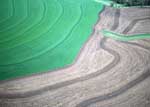 CSP
Rewards the Best, Motivates the Rest CSP
Rewards the Best, Motivates the Rest
Chief Bruce Knight recently presented Tier III
Conservation Security Program (CSP) Iowa farmer Jim Andrew with a $45,000 CSP
payment check for his exemplary conservation practices. Other farmers in
the area see the outcome of Jim's strong on-farm conservation practices and now
are asking, "how can I do that?"
Connect to
NRCS' State
News,
Newsroom, and
News Releases!

 Secretary
Johanns Announces Opening of New National Wildlife Center Secretary
Johanns Announces Opening of New National Wildlife Center
Agriculture Secretary Mike Johanns has announced a new Agricultural Wildlife
Conservation Center in Madison, Mississippi. Experts at the new center will
develop wildlife habitat technology for farmers and ranchers. These innovative
technologies will help them install conservation practices that enhance wildlife
habitat development. Additionally, Secretary Johanns announced $1.6 million in
competitive grants that will go to 12 entities in 10 states for development and
evaluation of technological tools for fish and wildlife habitat improvements.
Links…
 USDA news
release:
"Johanns Announces
Opening of New National Wildlife Center" (June 27,
2006) USDA news
release:
"Johanns Announces
Opening of New National Wildlife Center" (June 27,
2006)
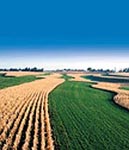 2004
CSP Contracts Modified for Enhanced Conservation 2004
CSP Contracts Modified for Enhanced Conservation
NRCS Chief Bruce Knight has announced the results of Conservation Security
Program (CSP) Fiscal Year 2004 contract modifications to include payments for
additional conservation enhancements not included in the original contracts.
Links…
 USDA news
release:
"Fiscal Year 2004 Conservation Security Program Contracts Modified" USDA news
release:
"Fiscal Year 2004 Conservation Security Program Contracts Modified"
Conservation Security Program

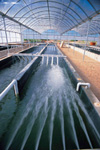 New
SARE Highlights Publication Provides Conservation Ideas for Farmers, Ranchers New
SARE Highlights Publication Provides Conservation Ideas for Farmers, Ranchers
Farmers and ranchers seeking to learn more about profitable and practical
agricultural systems will find a wealth of ideas in the 2006/07
SARE Highlights, a
free publication now available from SARE. NRCS staff who work directly with
producers will learn more about successful strategies they can use to advance
systems that are profitable as well as environmentally sound.

Click Here to See the Latest NRCS Directives
The U.S. Department of Agriculture (USDA) prohibits discrimination in all its
programs and activities on the basis of race, color, national origin, age,
disability, and where applicable, sex, marital status, familial status, parental
status, religion, sexual orientation, genetic information, political beliefs,
reprisal, or because all or a part of an individual's income is derived from any
public assistance program. (Not all prohibited bases apply to all programs.)
Persons with disabilities who require alternative means for communication of
program information (Braille, large print, audiotape, etc.) should contact
USDA's TARGET Center at (202) 720-2600 (voice and TDD).
To file a complaint of discrimination write to USDA, Director, Office of Civil
Rights, 1400 Independence Avenue, S.W., Washington, D.C. 20250-9410 or call
(800) 795-3272 (voice) or (202) 720-6382 (TDD). USDA is an equal opportunity
provider and employer.
| 

